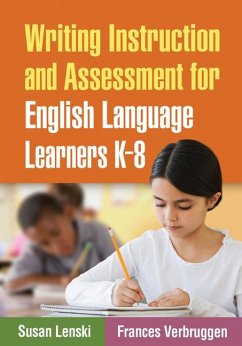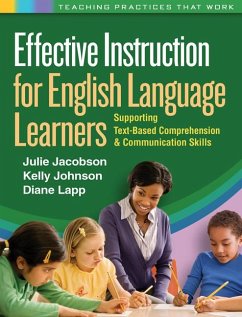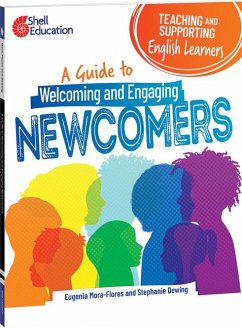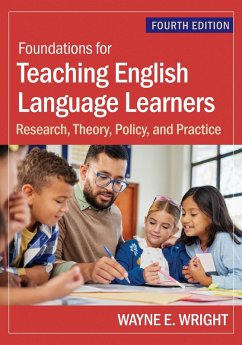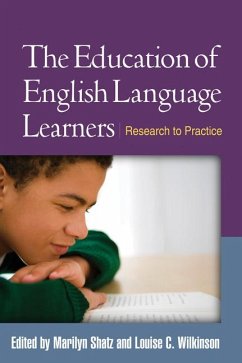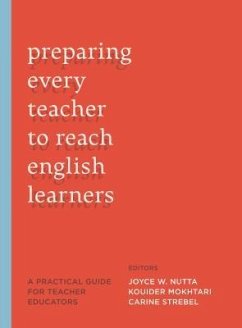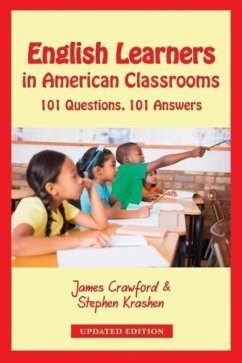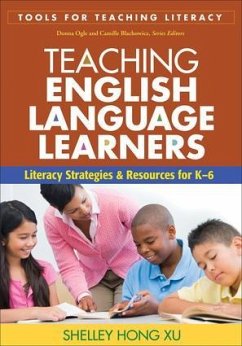Nicht lieferbar
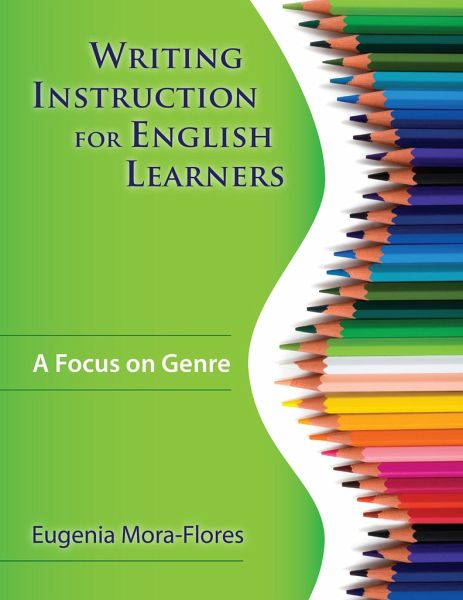
Writing Instruction for English Learners
A Focus on Genre
Versandkostenfrei!
Nicht lieferbar
Teachers are looking for tested means of helping English Language Learners improve their writing, spoken English, and academic vocabulary. Because writing involves high leveláacademic vocabulary and thinking skills, many teachers focus on reading comprehension rather than writing. Mora-Flores has developed a planning method for writing that fits within any language arts program. Her method shows how writing can be taught successfully to ELLs so that they meet or exceed writing standards.This book will provide an overview of four writing genres--narrative, expository, persuasive, and poetry--a...
Teachers are looking for tested means of helping English Language Learners improve their writing, spoken English, and academic vocabulary. Because writing involves high leveláacademic vocabulary and thinking skills, many teachers focus on reading comprehension rather than writing. Mora-Flores has developed a planning method for writing that fits within any language arts program. Her method shows how writing can be taught successfully to ELLs so that they meet or exceed writing standards.This book will provide an overview of four writing genres--narrative, expository, persuasive, and poetry--and how best to teach them to English Language Learners. Within each genre, sub genres will be presented that are a part of the IRA standards. The author will show teachers how to break down each genre in order to help ELLs better understand the structure of the genre and improve their writing in that genre.




